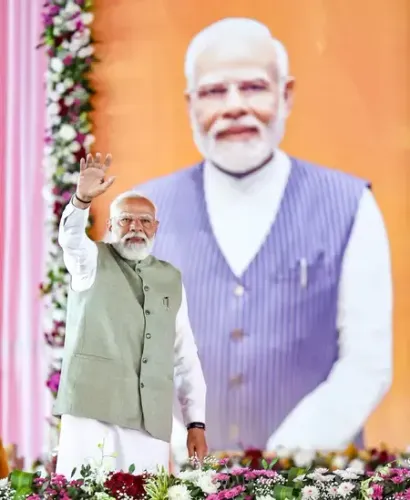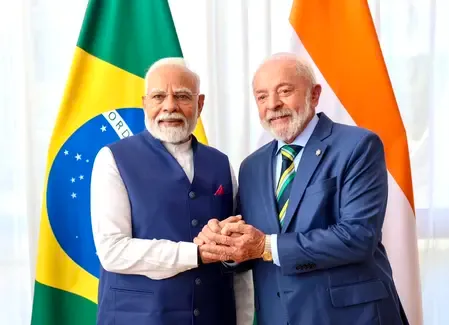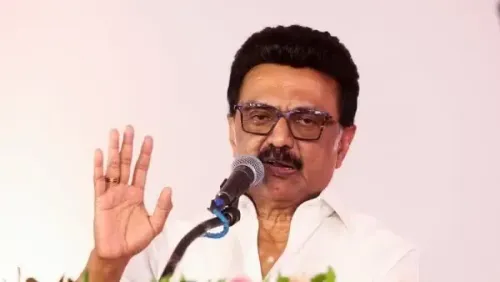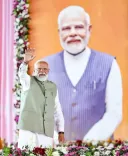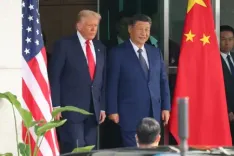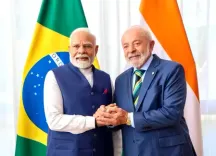Political Parties Withdraw from UCC Committee's Suggestion Process: Insights from Manu Gaur (IANS Interview)
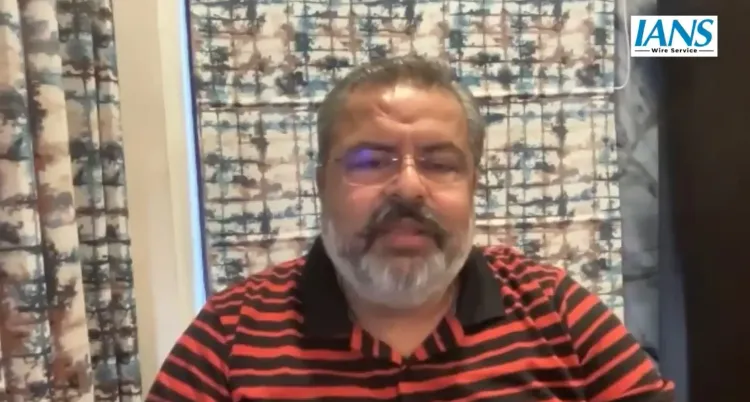
Synopsis
Key Takeaways
- UCC aims to provide equal rights to women.
- Public outreach yielded 2.5 lakh suggestions.
- Political parties Congress, AAP, and CPI distanced themselves.
- Online portal proposed for marriage and will registrations.
- Committee supports equal property rights for daughters.
New Delhi, Jan 28 (NationPress) Following the enactment of the Uniform Civil Code (UCC) in Uttarakhand, Manu Gaur, a member of the UCC rules drafting committee, shared insights with IANS regarding the implications of the Act on Tuesday.
Gaur highlighted that prior to the 2022 Assembly elections, Chief Minister Pushkar Singh Dhami had committed to implementing the UCC, which garnered public support and led to his government’s re-election. In his initial Cabinet meeting, the Chief Minister established an expert committee chaired by former Supreme Court Justice Ranjana P. Desai.
The committee comprised experts such as former Justice Pramod Kohli, former Chief Secretary Shatrughan Singh, and Surekha Dangwal, the Vice-Chancellor of Doon University.
In response to inquiries, Gaur clarified that the committee's focus was to ensure that the UCC would provide equal rights to women, a point emphasized by Chief Minister Dhami during the UCC launch.
He noted that the legislation aimed to empower women, who have long struggled for their rights and justice even after decades of independence.
Gaur elaborated: “The committee firmly decided that the UCC would serve the public interest. To achieve this, outreach initiatives were conducted, yielding approximately 2.5 lakh suggestions through various means. With Uttarakhand’s population at around 1.25 crore and approximately 25 lakh families, about 10 percent of families participated in the suggestion process, contributing input from religious organizations, leaders, lawyers, social groups, and political parties from the 2022 elections. Notably, Congress, Aam Aadmi Party (AAP), and CPI opted to distance themselves from the process and refrained from submitting suggestions.”
He pointed out that the predominant concern raised through public suggestions was the need to alleviate people's challenges. The committee proposed significant modifications, including the establishment of an online portal to streamline marriage and will registrations, thereby minimizing the necessity for individuals to visit government offices and expediting the registration processes for marriages, divorces, and property-related matters.
“This database would support the government in resolving property disputes efficiently. For instance, when family heirs engage in prolonged court battles over property, having their information stored in a government database would promptly clarify ownership rights,” he added.
Gaur also shared that suggestions were gathered from various religious communities, with the Sikh community questioning whether their ‘Anand Karaj’ (wedding ceremony) traditions would be impacted by the UCC's implementation. It was clarified that while customs or rituals would remain unchanged, marriage registration would become mandatory, which is essential for international travel.
One major controversy surrounding the UCC pertains to property rights, particularly the equal rights of daughters. Gaur identified this as a significant societal challenge, as the patriarchal nature of Indian society often leads to resistance against granting women equal property rights. “Nonetheless, the committee and the government are dedicated to ensuring equal rights for all individuals, irrespective of gender,” he asserted.
Gaur explained that marriage in Hindu culture is revered as a sacred rite, whereas in other religions, it is perceived as a contract. He cited the acceptance of divorce in Hinduism as an instance of societal adaptation to change.
Post-UCC implementation, individuals facing rights disputes, whether men or women, will be able to utilize this law. He underscored that women have historically encountered challenges after divorce, such as inadequate financial support and lack of childcare provisions.
With this context, the committee formulated a robust legal framework aimed at ensuring that women obtain justice and are able to assert their rights within society. Gaur asserted that the UCC would be advantageous for women across all communities, fostering equality and justice in society.


